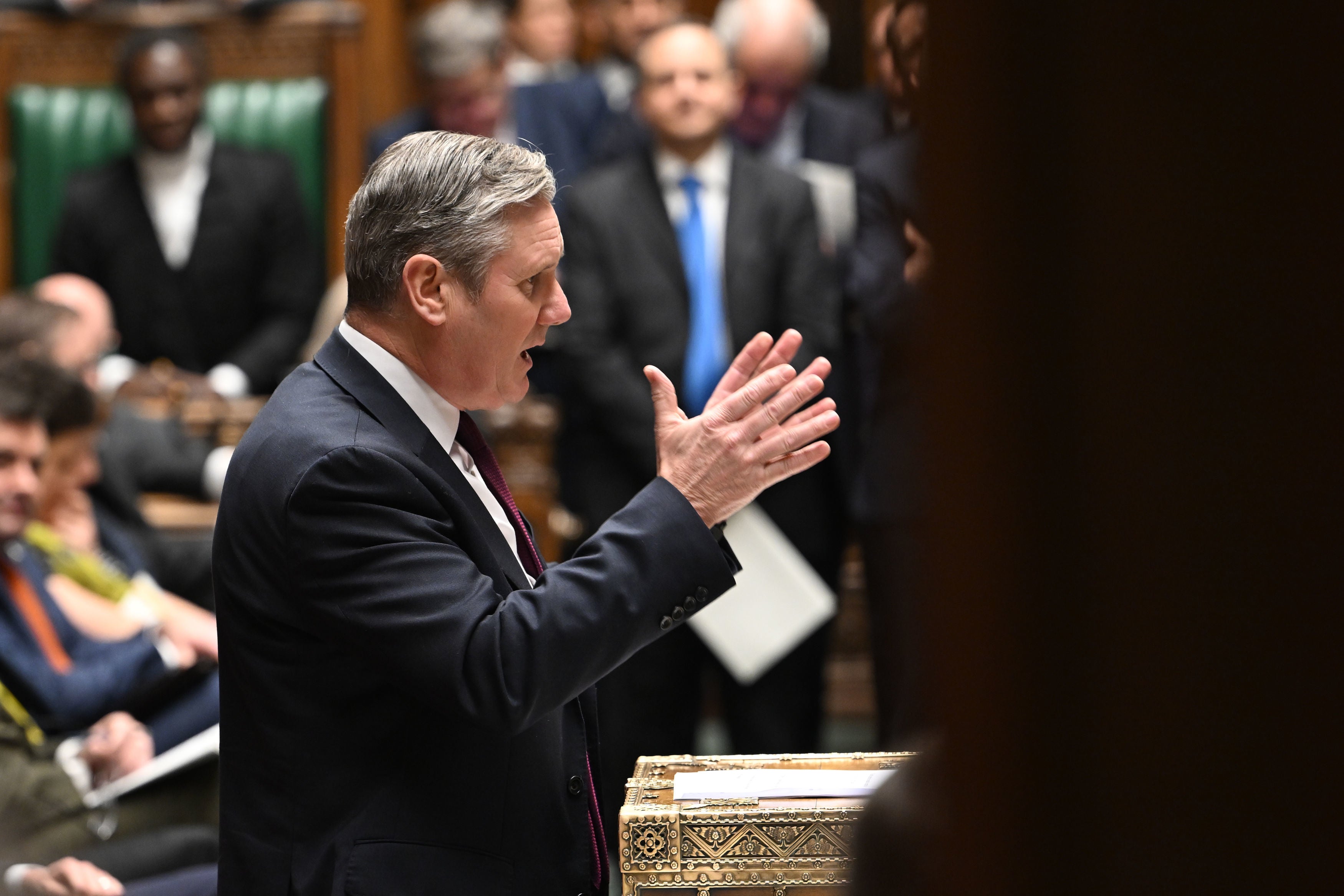He should mind his language, but there’s nothing sinister about Starmer’s Sunak takedown
The Labour leader was criticised by a cabinet minister for saying Rishi Sunak ‘doesn’t get Britain’ – with the implication that it was a comment about race. Let’s give him the benefit of the doubt, says John Rentoul


Claire Coutinho, the energy secretary, said that only Keir Starmer will “know what he’s implying” when he said that Rishi Sunak “doesn’t get Britain”. She was prepared to give the Labour leader the “benefit of the doubt that it wasn’t about race”, but said that “if that was the other way round, and a Conservative politician had said it about a Labour politician of colour, I think we’d have had no end of the confected outrage”.
Starmer had a good outing at Prime Minister’s Questions yesterday, successfully embarrassing Sunak over his past opposition to the Rwanda deportation policy and asking: “Which member should we listen to: the one before us today or the one who used to believe in something?”
But he got into trouble for his extended peroration in his sixth question about how out of touch the prime minister is. He mentioned “his private jet” and said: “He doesn’t know any schools where kids no longer turn up, and he doesn’t understand what it’s like to wait for a hospital appointment. Doesn’t the country deserve so much better than a prime minister who simply doesn’t get Britain?”
Nadhim Zahawi, the former cabinet minister, says that he “flinched” when he heard that phrase. It seemed to him to imply that someone of Indian heritage would have difficulty understanding Britain.
Starmer’s spokesperson seemed genuinely surprised, and protested: “The point that Keir was making when he said about ‘getting Britain’ is the reality of life facing people, and that’s the point that he was making and I stand by that.”
I am sure that is right, and that Starmer, or whoever drafts his questions, which are mostly written out for him, had become carried away by the “out of touch” theme – thinking that what makes Sunak unusual is his wealth rather than his origins. In a way, it is a tribute to the colour-blindness of British politics that it didn’t occur to Starmer – or to anyone in his office – that there might be an alternative reading of those words.
Starmer’s spokesperson denied that the phrase was “dog whistle” politics. Funnily enough, the term “dog whistle” might have been accurate, for once. The point about a dog whistle is that most people cannot hear it; it is only audible to dogs. By analogy, a “dog whistle” message is one that passes by most listeners but is heard and understood by its target audience. The phrase is usually misused to describe a message that is readily understood by most people to be racist or unacceptable. In this case, the dog whistle could be heard by Zahawi and Coutinho, but not by the person blowing it.
It is not, though, the first time that Starmer has said something potentially insensitive. A year ago, he wound up a less successful session of Prime Minister’s Questions by asking Sunak: “Is he starting to wonder if this job is just too big for him?” Sitting in the press gallery, I immediately assumed that this was a reference to Sunak’s height. I said to Starmer’s spokesperson that I didn’t think much of it – but on that occasion, too, he seemed sincerely taken aback that the words could have been interpreted in that way. Not least because, in any case, Starmer is not that much taller than Sunak.
So, I think Starmer should be acquitted of the charges of racism and heightism. But he ought to be more careful with his language. I should perhaps take back what I said yesterday about the use of insults in the House of Commons. Generally, I am in favour of toning them down on the principle set out by Tony Blair in his memoir that an attack that seems “flat” can be more effective than calling someone a liar or a fraud, because the floating voter is more likely to be persuaded by it.
I thought Starmer calling Sunak “Mr Nobody” was effective, because he had already established that the prime minister didn’t support his own policy. But the “private jet” passage was cheap. He said Sunak “does not get what a cost of living crisis feels like”. Well, neither does the leader of His Majesty’s opposition, of course, on his £144,000 salary in a two-earner household.
He should have left the personal stuff out of it – the references to schools and to the prime minister’s supposed ignorance of how it feels to wait for a hospital appointment. Those kinds of personal insult lead you into the kind of moral desert where people might put the worst possible construction on your words.
I do not believe that Starmer realised how his words might be taken, but if he hadn’t stooped to personal insults, he wouldn’t have got himself into trouble.



Join our commenting forum
Join thought-provoking conversations, follow other Independent readers and see their replies
Comments